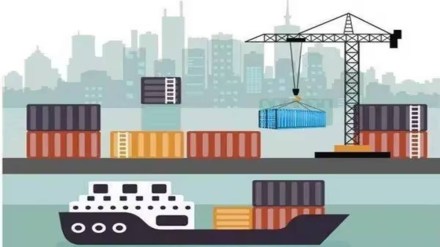India’s exports of smartphones, information technology products and services to European Union countries could be hit by the Foreign Subsidies Regulations (FSR) of the 17-nation block that came into effect from Friday, according to a trade expert.
The proposed regulations prohibit foreign subsidies and grants the European Commission (EC), the executive arm of the EU, to investigate cases where foreign subsidies distort competition within the EU.
India exported goods worth over $74.8 billion to EU countries in 2022-23
In cases where the Commission finds that a foreign subsidy is distorting competition, it can impose various remedies, including fines of up to 10% of the company’s annual aggregated turnover, requiring the company to repay the foreign subsidy if competition distortion is confirmed, or banning the company from participating in public procurement, founder of Global Trade Research Initiative Ajay Srivastava said in a note.
With the new regulations the commission can now investigate products if they have received any incentives like Production Linked Incentives, Faster Adoption and Manufacturing of Electric Vehicles (FAME) or export benefits in India, he said.
The EC is already investigating the PLI scheme, and a decision is expected soon. If the Commission finds the PLI scheme violates WTO rules, it could impose sanctions or fines, he said.
Under the FSR companies must begin notifying the details of relevant transactions involving foreign subsidies starting from October 12, 2023. The Commission will publish guidelines on the application of the FSR on December 31, 2023, and release an annual report on the FSR’s implementation by June 30, 2024.
The FSR covers financial contributions from non-EU governments to companies operating in or exporting to the EU’s market. These contributions include direct grants, interest-free or low-interest loans, tax incentives, state-funded research and development, provision of goods or services at below-market prices, and provision of land or buildings at below-market prices.
The Indian government has numerous schemes providing incentives that can be investigated by the EC. The FSR applies to transactions above a certain threshold. Companies must notify the European Commission if their transactions involving foreign subsidies exceed this threshold.
“The World Trade Organisation explicitly prohibits countries from investigating subsidies given by other countries. Thus, FSR is also in violation of the WTO mandate,” Srivastava said.
Key exports from India to EU are diesel ($8.4 billion), Aviation Turbine Fuel ($6.6 billion), apparel and makeup ($5.6 billion), smartphone ($4 billion), cut and polished diamonds ($2.6 billion), aluminium ingots ($1.5 billion), medicines ($1 billion).
